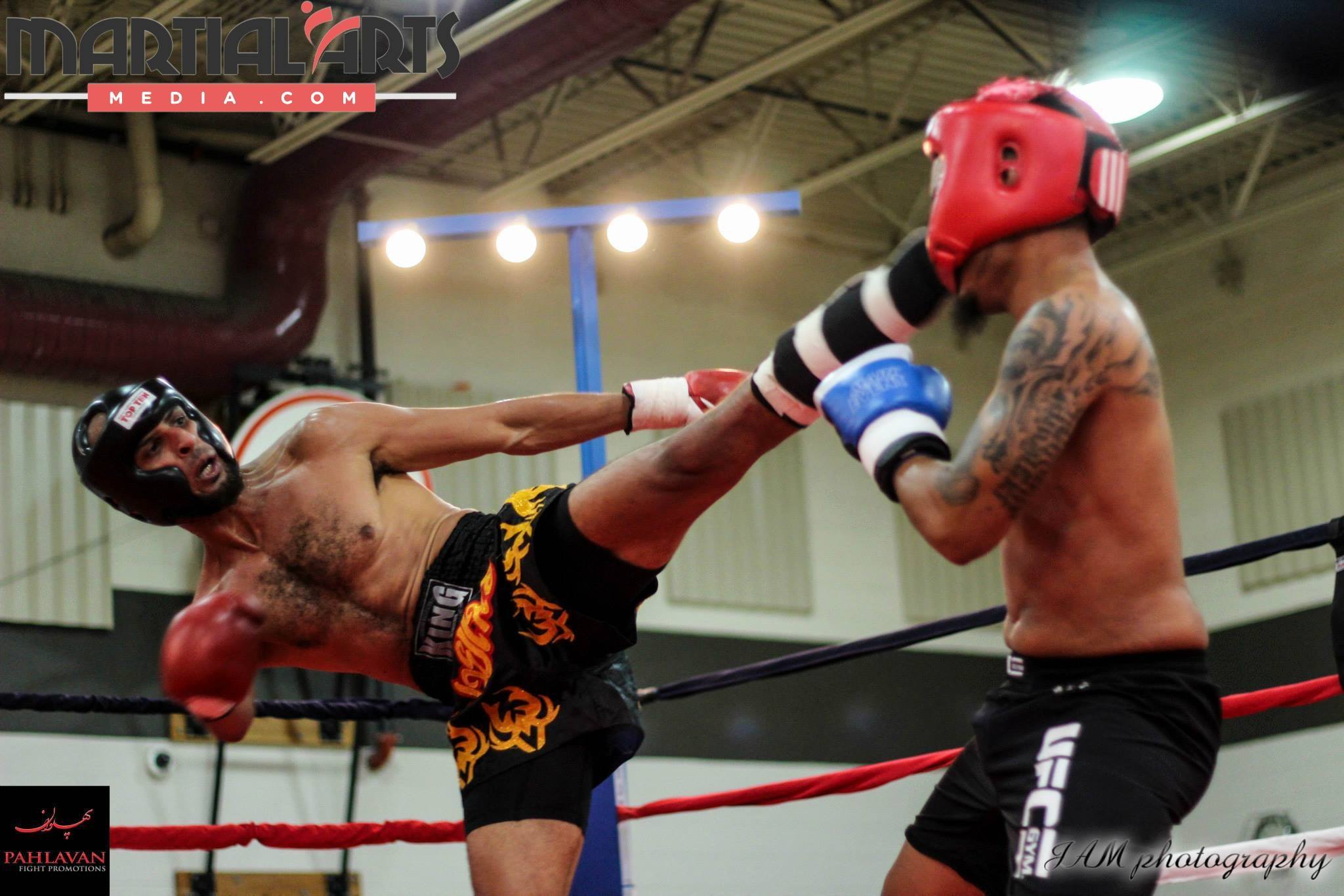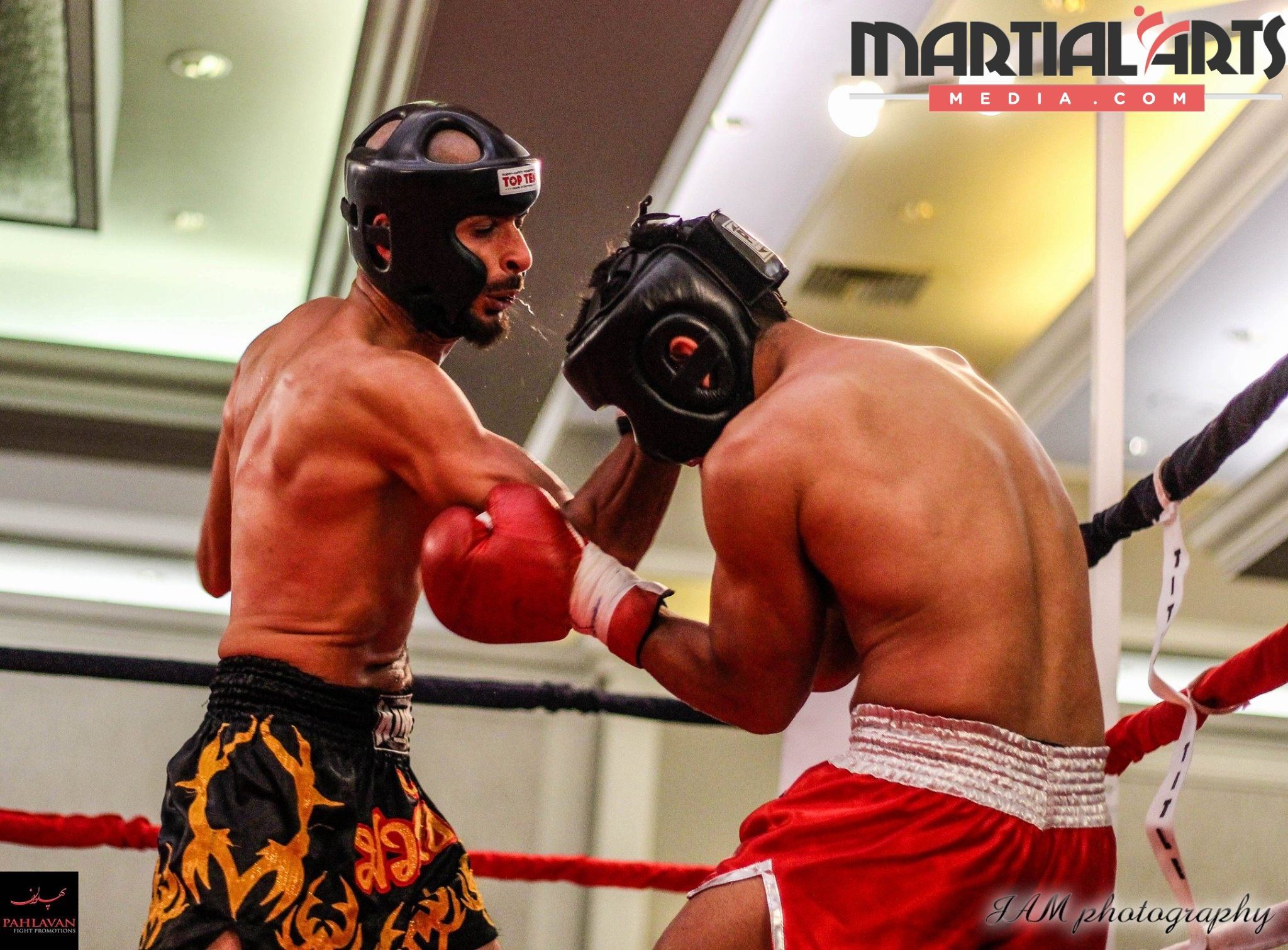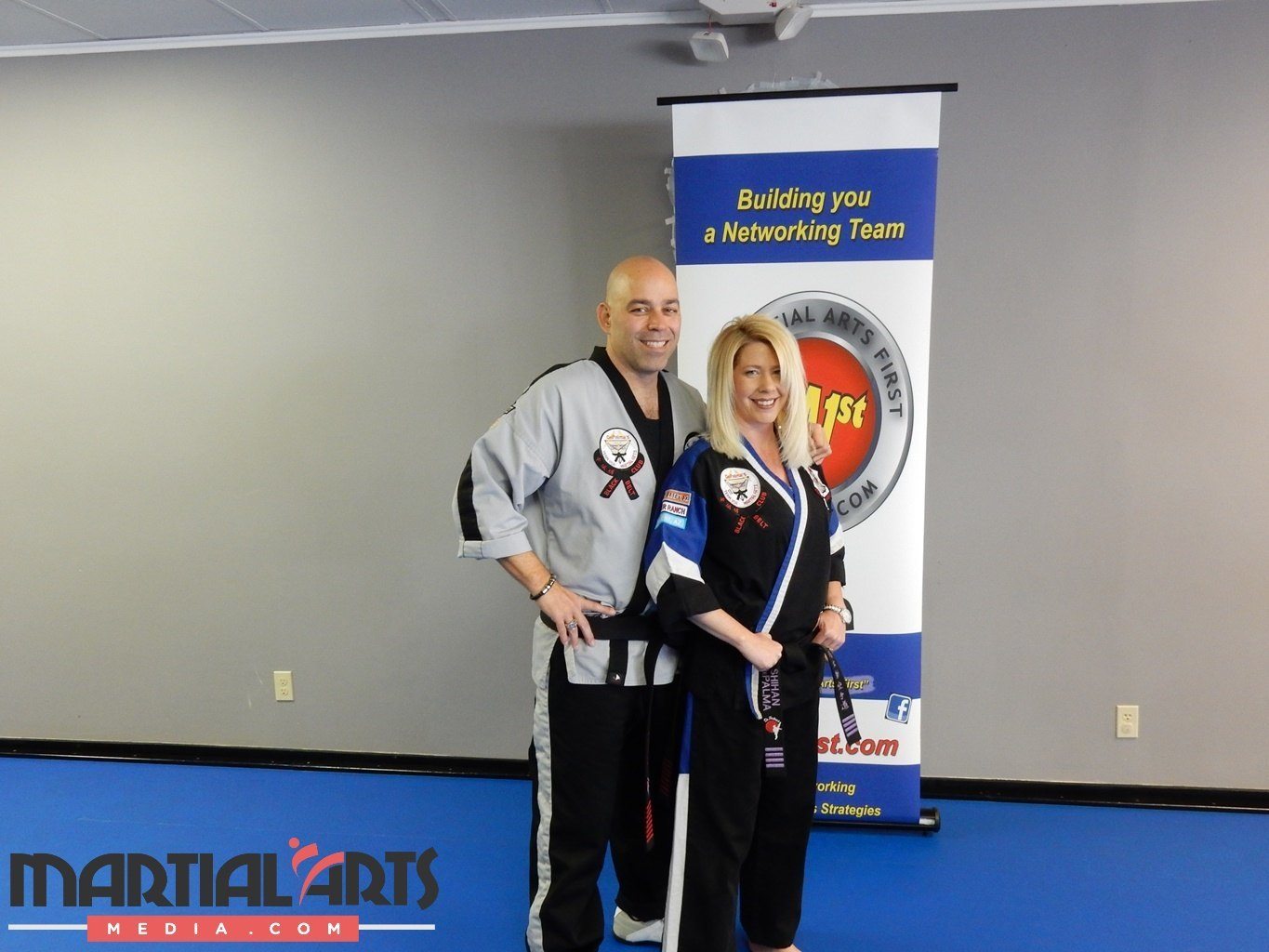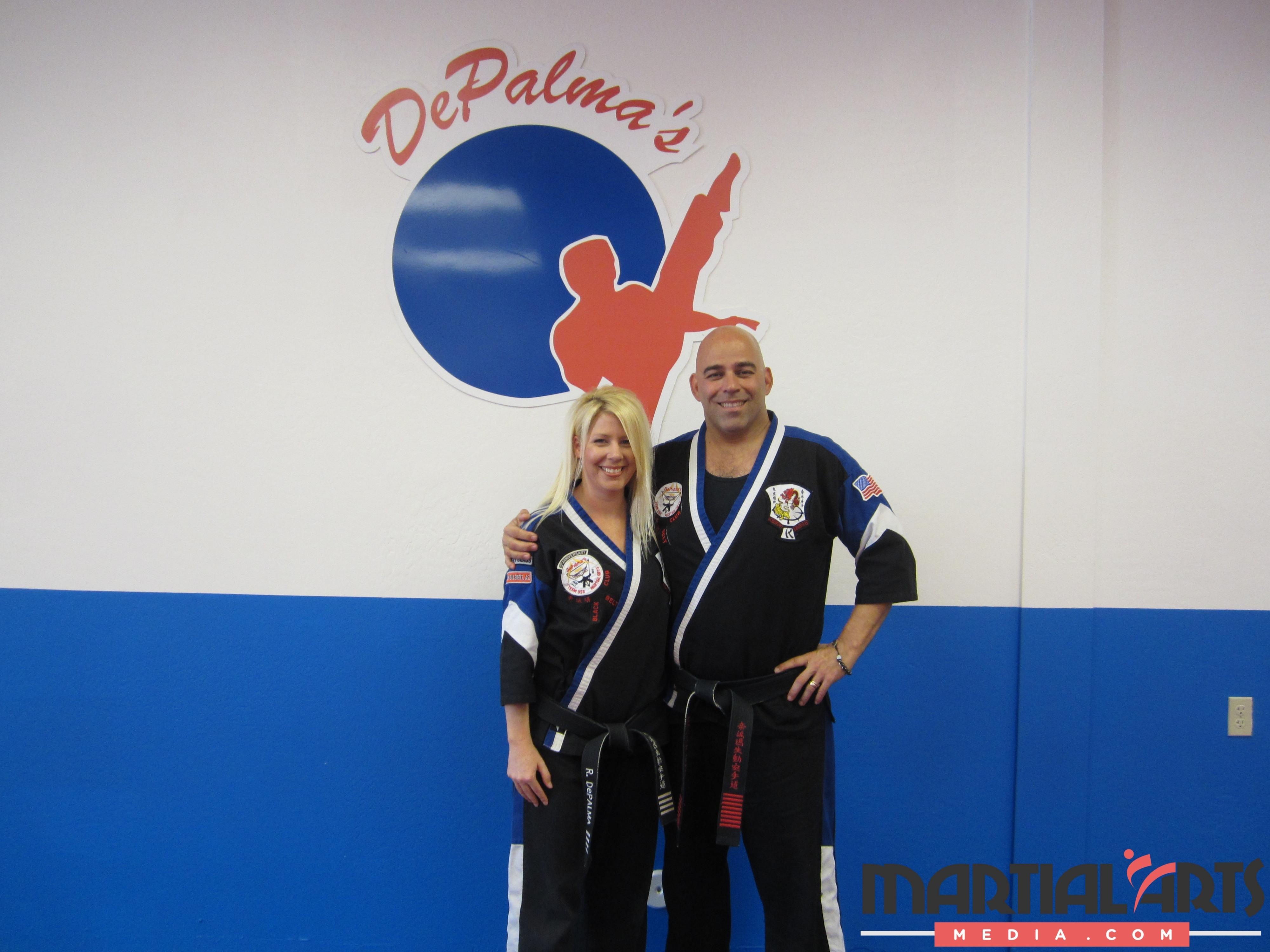Martial Arts instructor Adel Refai didn't dodge a bullet, but he is lucky to be alive today. This will shift how you go about your day.

IN THIS EPISODE, YOU WILL LEARN:
- The accident that ended up changing Adel Refai’s course of life
- The benefit of martial arts beyond the physical movement
- How technological advancements have helped business in general
- How his ordeal restored his faith in humanity
- George’s relatable near-death experience
- And more
*Need help growing your martial arts school? Learn More Here.
TRANSCRIPTION
GEORGE: Hey, this is George Fourie and welcome to another episode of the Martial Arts Business podcast, episode number 40. Today I channel over to the East of the United States all the way to Florida and I'm speaking with Adel Refai from Combat Performance and Fitness. How are you doing Adel?
ADEL: I’m doing great, how are you George? Good morning.
GEORGE: Awesome, doing great. Cool, so you've got an exciting and horrific story to tell. But before we get to that, let’s just… just give us a bit of a background: who is Adel Refai?
ADEL: Well, I'm a 38-year-old male, 5’ 10”. I’m the son of Egyptian immigrants, I grew up in New Jersey in the United States and moved on to Florida about the time I was 29 going on 30 and like I was telling it before, I grew up kind of fascinated by the martial arts, but it was just something I admired from afar, watched movies and I was involved with other sports and activities growing up. And then when I moved here, I started the next chapter of my life. I just kind of decided, well, this is something I always wanted to do, so I'm going to check it out.
So I went into a gym and hit a heavy bag for the first time and I signed up for a karate program and then for the next 4 and a half years after that, I would go there 5 or 6 days a week just training, wanting to get better, wanting to get better. And then from there, got my black belt and then I got a black belt in kickboxing and then I started competing in Muay Thai fights and now I'm teaching kids, so the circle is complete I guess! But you know, I do internet marketing also and I work with small business owners and I kind of teach them just the basics and martial arts is just my passion and hobby on the side.
GEORGE: So how did you actually decide, all right: you're doing the martial arts and now you're going to start teaching?
ADEL: You know, it was just one of those things, it was one thing leads to another, leads to another, leads to another. I had a lot of instructors and they were so good about spending so much extra time outside of class with me to help me train and put in extra work one on one and all that. And so when I kind of moved on from going to the classes, because actually eventually they discontinue the adult program, but I have a little brother through a volunteering program here, Big Brothers, Big Sisters.
And so I signed him up for the karate program and I would go and I just started initially just watching and then the head instructor, she offered, you can jump on in and help out if you want. And I was like, oh, OK, well I don't want to impose. And I started just kind of helping out here and there, and then I actually just started volunteering about 2 to 3 times a week. It just kind of happened that way, it was just kind of the thing to do to start giving back after people invested so much time in me over the years.
GEORGE: So Combat Performance and Fitness: you mentioned it’s a part time business for you, right? Is it only you in the business, or…?
ADEL: Oh, no, no, no, no, I don't own it, I just help to teach the kids the karate program there. A friend of mine owns that business and he does jiu-jitsu and Muay Thai and kickboxing and then adult fitness classes and kids programs. I help out with just the kids’ karate side and then I help coach some of the fighters as well.
GEORGE: Ok, awesome.
ADEL: Yeah, that's it.
GEORGE: Now, you've been in the martial arts industry for quite a while and you had a bit of an ordeal I believe?
ADEL: Yeah, my kickboxing coach is also a video guy. He does video editing and stuff like time and for the last couple of years, we started doing a series of videos, action videos and he’s been using them to promote different organizations that he’s involved with on the martial arts side. So we did one video, where a guy, it was me and my girlfriend and I was pretending to be a bad guy attacking her, kind of a light hearted, funny video where she beats me up. And we started doing another one, another kind of action video to use for promotion and we got the choreography down and then we went out to a park out in Tampa to just kind of scout the area for when we start filming it.
And once we kind of figured out what we wanted to do, we were just kind of walking around, looking at the sunset. And I was getting ready to leave, I had a bad headache that day and I told Mark, I'm going to get going, my head hurts, and he was like, well, just hang on, it’s a really nice sunset, let’s just take a picture real quick. And I said, OK, sure, let’s just take a picture and then I’ll head out. So while I was standing there, it’s sunset, it’s daytime and we were standing right next to a children's museum and a dog park, it was a really nice area and while I’m standing there, waiting for him to get his camera ready, all of a sudden, somebody hit me on the head with a hammer and I reached up and touched my head and I felt a hole right at the top of my head, on the centre.
And I stayed conscious, I felt my body at that point just gave in and I kind of collapsed to the ground and my friend and his wife, they had heard a gunshot and they turned around to look in the direction where they heard that noise and when they turned back, they saw me collapse to the ground and I started bleeding. And my friend was quick thinking and he took his shirt off, put it on my head to stop the bleeding. He called the police and the ambulance, and the next thing I know, I'm being rushed to the hospital, there are 8 to 10 pairs of hands on me doing all sorts of tests and whatnot. Luckily, nothing serious happened and I'm fine today.
GEORGE: So just backtracking: you got a bullet to the head and the next thing you realized is you being transferred. The police are there and they're taking you to the hospital – are you actually conscious at this point?
ADEL: Yeah, I was completely conscious, but I guess my body was just in shock, I wasn't really panicking or anything. I don't know, it happened really, really fast, I was calm the whole time and yeah, I was conscious the whole time, I never passed out, but when I think back to it, it’s all a little bit of a blur, I'm not sure how I stayed awake for the whole time.
GEORGE: How did you recover from that? I have so many questions, but I'm a bit stuck on that!
ADEL: You know, I was fortunate, it wasn't serious, it didn't go through the skull and into my brain, obviously. It basically went as deep as it could without breaking the skull, so they took the x rays and they didn't find any bullet fragments, I just got lucky. I had a really bad headache a week after that and some panic attacks, but in terms of health and everything, I got lucky. I dodged the bullet, George! I got lucky, it didn't break the skull and that's it. An inch, a few millimeters one or the other and it would have been a different story I guess.
GEORGE: Well, I guess I should just give a shout out to Kevin Rogers from Copy Chief, because he was the one that shared your story and put me in touch with you, thanks to Kevin for that. Now, I want to know, do they actually know who did it? Was there someone who had the intention to do it, or was it just you caught a flying bullet?
 ADEL: They found nothing, surprisingly. We were right on the Riverwalk, right next to the water, so our guess is that it went into the water after it hit me because if it had landed on the ground anywhere, they hopefully would have found it, but we think it went under the water. They didn't find anything, they didn't find anybody, there weren't any video cameras in the area, they didn't pick up anything – there was just nothing. We heard it and I saw commotion in the area where we heard it come from and as I was falling, I turned around and saw some people running in the distance, but the police were never able to identify anybody or find any video from the security cameras in that area, because it’s a public park, the cameras in it didn’t pick up anything, so… nothing.
ADEL: They found nothing, surprisingly. We were right on the Riverwalk, right next to the water, so our guess is that it went into the water after it hit me because if it had landed on the ground anywhere, they hopefully would have found it, but we think it went under the water. They didn't find anything, they didn't find anybody, there weren't any video cameras in the area, they didn't pick up anything – there was just nothing. We heard it and I saw commotion in the area where we heard it come from and as I was falling, I turned around and saw some people running in the distance, but the police were never able to identify anybody or find any video from the security cameras in that area, because it’s a public park, the cameras in it didn’t pick up anything, so… nothing.
GEORGE: That's fascinating.
ADEL: Yeah.
GEORGE: So how has life changed for you since the incident?
ADEL: Oh, you know, the first few days… well, the first week was just dealing with a bad headache, you know? And after that went away, it was kind of, it was re-evaluating everything, just thinking about what I want to do moving forward and what I want to stop doing that I've been doing… everything just started… you have to kind of stop and take a look at everything that you've been doing up to that point when that happens. And so I just moved on, I went and visited my brothers to clear my head and that was a really good visit for me.
And I came back to Florida and I made the decision that I need to move forward with my life in all aspects because I was going to that hospital and it was just occurring to me that I could easily be dead and I was thinking about how my life would end in that moment and all the loose ends and I wasn't happy with how things were in that moment, you know? I've just been kind of making an effort to live a little more urgently. And then, of course, the bills started rolling in and you can only have a little bit euphoria before some stress gets poured into your life. But it’s been fine the way I’ve handled this psychologically.
GEORGE: And the reason I'm asking this is for myself as well, because I was 27, 27 or 28… 26… I can't recall, it’s a blur. But I was in a car accident where I was unconscious for three days and I broke two neck vertebrae and had bleeding on the brain, so I had a haemorrhage basically and I was so medicated that I actually thought it was all funny, until a doctor walked in and he was looking at me and giving me my medication and he laughed! And I said, why are you laughing? And he said, because people like you, we don't normally operate, we don't operate on them. And I said why? And he said, because you're dead in two days. And he walked off!
ADEL: Really? Oh my God!
GEORGE: And that's what he said and my smile dropped. And it’s probably the biggest… everything in my life changed at that point, that was the first time it really hit me and it’s exactly what you were saying how you were realizing that you could have been dead: that was the moment I decided to emigrate.
I traveled to the United States, I'm in Australia now, but when I traced it back, the biggest decisions I've made in life was due to that one incident. Which is why I'm really asking you, what changed for you? Now you're saying you’re living with a sense of urgency and there are things that you don't want to put on hold and so forth. So what are those core things? What's going to be different for you from here on?
ADEL: Well, we've got I guess the professional side and the personal side. The professional side, I think there was a little bit of a lack of self-confidence that was pulling me back from pushing my business in the direction I wanted to go with it, I was kind of staying stagnant with it, I wasn't really sure that I was able to do what I wanted to do with my business, which was kind of take it overseas and start introducing internet marketing to certain third world countries where it would make more of a difference and impact. But I guess it kind of intimidated me in the past.
After that happened, it was like, well, I need to get moving with that plan, because I have this intention to try and help people and I keep putting it off. And I could be dead any day now and that is kind of selfish I think to hold off on doing something like that. Personally, there's this lovely woman in my life that I was honestly just scared to be with, to pursue a real relationship with. And I was lying in the hospital and she was one of the few people I was thinking of. And half an hour later, she shows up, and she's standing at my hospital bed and it hit me hard that I was screwing up with her in that part of my life and not moving forward with that. So I say those two things mainly are what really was on my mind in the weeks afterward.
GEORGE: That's awesome. I mean, it really puts things into perspective, doesn't it? It’s so easy to just get caught up in the moment and I guess you – and this is a deep conversation!
ADEL: Yeah, yeah, it’s getting deep George.
GEORGE: We don’t want to get the tissues out but hey, I guess it’s an important topic, because of look, we talk about the martial arts, that's what the podcast is about. We talk about the martial arts business, I'm also involved in the internet marketing side, we've got a Martial Arts Media Academy, where we help school owners learn about digital marketing and how they can use online lead generation in a strategic manner.
So that's always the topic here, but it’s so easy in life to get caught up, and especially in business, you get so caught up in the now and the problems and sometimes, it’s just perceived problem, because it’s really first world problems. I come from South Africa, where hunger is the problem. People are fighting not for where am I going to charge my iPod, but there are actually kids that are seriously hungry, they're trying to figure out where the next meal comes from.
ADEL: Yeah.
GEORGE: I guess what I'm really trying to get out of this conversation with you is, it just gives perspective. You think you've got problems and you think you're going a certain way, but in a snap, it could just be taken away from you, like with yourself. And I mean, it’s not that you were even doing anything, you just happened to be there.
ADEL: Yeah. Yeah, I completely agree, it definitely does add a lot of depth to the way you look at things, you know. The view of the accident, you actually do realize that it could have been over in a second and you actually feel it, it takes on a different meaning on what you're going to get up and do the next morning.
GEORGE: So tell me a bit about your business: where do you see yourself going with your business? You were saying you're looking at opening up in different countries and how do martial arts play a role in your life now moving forward?
ADEL: Well, I think martial arts has always been in my life one way or another. It started out from a selfish standpoint, where it was just me wanting to learn and learn and learn and be a martial artist and compete and get better. And then, as with anything I guess, once you reach a certain level of proficiency and you're good at it and other people start looking to learn from you and you hopefully, you turn around and help them gladly.
And so I guess now, I'm kind of like in between. Partially I'm still learning and competing, I'm also teaching adults, as well as kids, but specifically, there's been so many classes that have ended and I've been driving home, thinking about what I've learnt that day, what the instructor said and running it through my head and realize that it applies to something specific going on in my life right now, something in my business.
It’s one of those things, I guess martial arts is so personal, that it kind of just transcends just the physical movements and it applies to all parts of your life, at least that's what I found. I've always read books and tried to grow as a person and read business book to get better internet marketing, but sometimes it’s just like, a martial arts class, I kick a few times and I'm driving home and I think about the lesson I learned over sparring and I was going about my business and it’s just interesting how it kind of works around that way I guess.
But yeah, for the actual business side of it with internet marketing, like I was telling you, I work with small business owners, people that are basically new to internet marketing and teach them how to get their business online, how to market themselves online. And then, if they want to go any further after that day, in detail, or become an expert in any specific niche, then I’ll refer to somebody. And a little way ago, it occurred to me that anybody can teach somebody how to make a $100, $200, $300 a month, that's not hard – that's not something you can live on, at least in the US or Australia, right? But, in a third world country, $300 or $400 a month is life changing, that will change a life of an entire family in a small village.
And so that's where I want to go with this eventually, is to start introducing it to countries where it’s going to have a much larger impact, third world countries where they don't really have a good economy, but they learn internet marketing and all the time they're connected to the first world, the developed economy and now the money is being funneled to the areas that need it the most. That's what I'm thinking.

GEORGE: That's awesome. Where's your target, are you going back to your roots in Egypt, or are you thinking just on a broader scale?
ADEL: I’m going to start with Egypt, just because it’s familiar. The language, the people, if there’s any red tape, I’ll be comfortable navigating it. And I go there regularly anyway as it is, so if that works out, then that seems to be the easiest launching point and there can be a lot of people freelancing and there are enough people that speak English, that does seem to be the easiest point. And for some reason, if somebody tells me that different countries would be better to launch from, then that's fine, because I'm not really depending ongoing and opening up a shop, like a physical location, I want to keep it online and remote for the time being, so we’ll see. It’s early stages, so…
GEORGE: Well, good luck with that. I know for me, I employ quite a few people in the Philippines and it is rewarding to know that I'm supporting, the money that you send, it does support a family, it’s not just… it does impact an economy, especially for people where with jobs, there's nothing available, the internet is not available. And if they can't access the internet, there is not a real choice. It’s that or nothing.
ADEL: Yeah, yeah, exactly. Well you know, most countries have the internet nowadays. Even a country like Egypt, everybody’s got the internet. It’s interesting how technology, it’s moved so quickly the past ten years. I remember, growing up and no one, maybe out of my gigantic family, maybe one or two people had a landline. So if I wanted to talk to my grandma, we called the building she lived in, there was one phone and everybody used it, so we’d call the neighbors and they would go upstairs and get my grandma and my cousins and they would come downstairs and we would talk that way.
And that was fortunate, to have one in the building. And the plumbing wasn't what it is now and nobody had a phone, nobody had developed plumbing, because of the infrastructure issue, but the internet all of a sudden comes in and Wi-Fi comes in. And one year, I go to Egypt and everybody's got the internet in their home, and I say, how do you have the internet, how is this possible?
That's when it started clicking everybody's got the internet, or they have access to it, there are internet cafes everywhere or friends split the cost of internet for a month and they run cables back and forth, everybody's got it there. They have access to it, I think it’s going to allow a jump in the quality of living in all of those countries, it’s progressing properly.
GEORGE: For sure. Adel, it’s been awesome talking to you. I know you had a bit of a setback, I mean, you're instructing part time, you're getting your business going and so forth and I know you've been hit with some heavy duty medical bills, with your…
ADEL: Yeah, yeah.
GEORGE: Going through your ordeal, as if that wasn't bad enough to deal with, you got all that. I definitely want to give a shout out for anybody listening: if anybody can help you support… I know you put up a go-fund-me page, is that right?
ADEL: Yes, and no, it’s actually, the site I'm using is youcaring.com. I was looking into some of the different sites and youcaring was the only one I found that doesn't take up a percentage of the donation t run the site, so that seemed like the best option.
GEORGE: And you have the link?
ADEL: Yeah, it’s a bit of a long link, but it's youcaring.com/adelrefai-836411… if you can put the link up with your podcast…
GEORGE: I’ll tell you what I'm going to do: for everybody listening, what we’ll do is: one, well create a short link. You can just go to the show notes, the show notes in martialartsmedia.com/40, but I’ll also create just a link shortener for that, so it will just be martialartsmedia.com/adel, so that will be a-a-d-e-l, is that right?
ADEL: It’s a-d-e-l, but you can spell it, however, you want on the link, I don’t care.
GEORGE: A-d-e-l, OK. You know what, I turned it into two A-s to make sure I pronounce it properly.
ADEL: Oh, I got you, your little phonetic notes!
GEORGE: That was the genius hack that I did.
ADEL: Yeah, then the bill started coming in and they're still coming in and it’s just… it was starting to get a little overwhelming and I was trying to figure out a way to deal with it and then a friend of mine suggested setting up a fundraiser page. And I wasn't really comfortable with it at first. I set it up and I just kind of left it there. I don't know, eventually I just decided I need to solve my problem and ask for help and you know, if somebody wants to donate, they will, and if they don't, they won’t.
But the response so far has been so great, it’s been overwhelming I'm just so appreciative and whatever comes in is going to help and I truly appreciate it and I will obviously do my best to pay it forward at some point when I'm able to, but any help I could use!
GEORGE: I know it’s an awkward thing to do, it’s kind of the last thing you want to do: I'm in a situation, but I don't really want to ask for help either, you know, because like you're saying, it’s a pride thing and you just don't want it. But sometimes, you've just got to, my girlfriend always says to me: everybody always in some way got a hand.
Somebody reached out and helped, whether it’s in business or something else, there's always someone that actually stepped in and helped someone pull through to the next level in life. So if there is anybody that can help – awesome. It was great to speak to you and hear your story and give it some context because it’s something that can happen to anyone, literally, you can be anywhere in the street and be in the same situation. So yeah, anybody that can help, otherwise, it’s been awesome speaking to you Adel.
ADEL: Yeah, you too George, thank you so much.
GEORGE: Awesome, and I hope to chat with you soon and good luck with the business as well.
ADEL: Yes, thanks very much. I’ll definitely keep in touch and best of luck to you as well.
GEORGE: Awesome, chat soon!
ADEL: Take care George, thank you!
*Need help growing your martial arts school? Learn More Here.
Enjoyed the show? Get more martial arts business tips when you subscribe on iTunes for iPhone or Stitcher Radio for Android devices.







